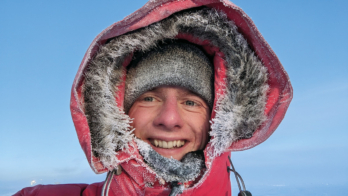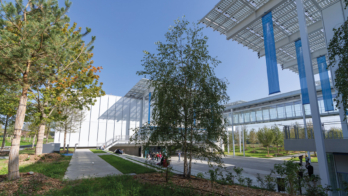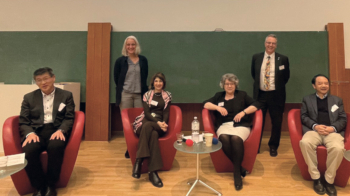In May, an advisory panel to federal funding agencies in the US approved a proposed plan for the future of the country’s particle physics. Top priorities in the plan – written by the Particle Physics Prioritization Panel (P5) – include continuing to play a major role at the LHC in Europe; building a world-leading neutrino programme hosted in the US; and participating in the development of a proposed future linear collider, if a decision is made in Japan to go forward with construction.
The P5 report culminates a process open to all members of the US particle-physics community that lasted more than a year. It was presented to the High Energy Physics Advisory Panel (HEPAP), a body that formally advises the US Department of Energy Office of Science and the National Science Foundation.
The plan recommends a US particle-physics programme that will pursue research related to the Higgs boson, neutrinos, dark matter, dark energy and inflation, and as-yet-undiscovered particles, interactions and physical principles. It advises increasing investment in the construction of new experimental facilities.
The P5 panel envisions the US as the host of an international programme of neutrino research that will operate the world’s most powerful neutrino beam and, with international partners, build a major long-baseline neutrino facility complemented by multiple small, short-baseline neutrino experiments. Launching this programme will involve a change in direction, because the panel recommends reformulating the currently planned Long-Baseline Neutrino Experiment as an internationally designed, co-ordinated and funded programme called the Long-Baseline Neutrino Facility, or LBNF. The facility would use a neutrino beam at Fermilab, upgraded through the proposed project called the Proton Improvement Plan II, together with a massive liquid-argon neutrino detector placed underground, probably at the Sanford Underground Research Facility in South Dakota, and a smaller detector placed nearer to the source of the beam.
The plan emphasizes the need for the US to begin several planned second-generation dark-matter experiments immediately, with a vision to build at least one large, third-generation experiment in the US near the beginning of the next decade. It also recommends increasing funding for the particle-physics components of cosmic surveys.





